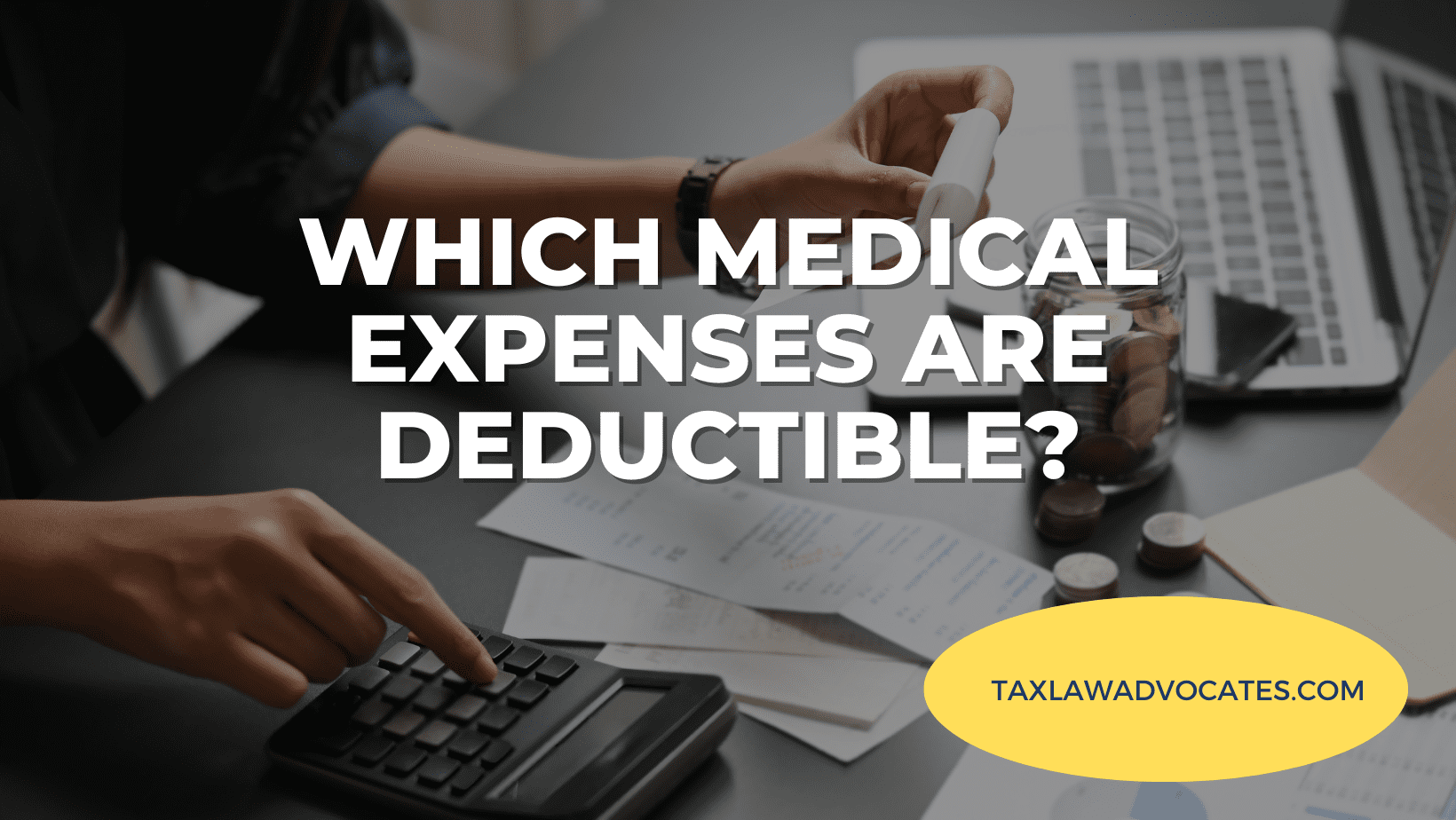When it comes to tax season, many taxpayers are eager to take advantage of deductions that can reduce their taxable income. One area often explored is the deduction for medical and dental expenses. The common belief is that all medical expenses are deductible. However, the reality is more nuanced. Understanding the IRS rules and the thresholds for these deductions is crucial to accurately claiming them and maximizing your tax benefits. Let’s delve into what is deductible, what isn’t, and how you can navigate the complexities of medical expense deductions.
Understanding the Medical Expense Deduction
The IRS allows taxpayers to deduct certain medical and dental expenses, but only if these expenses exceed 7.5% of your adjusted gross income (AGI) for the year. This means that if your AGI is $50,000, you can only deduct your medical expenses exceeding $3,750 (7.5% of $50,000).
To claim these deductions, you must itemize your deductions on Schedule A (Form 1040). The deduction applies to expenses you paid for yourself, your spouse, and your dependents during the taxable year. Importantly, the expenses must be out-of-pocket costs that are not compensated by insurance or any other means.
What Qualifies as a Deductible Medical Expense?
The IRS defines medical care expenses as payments for the diagnosis, cure, mitigation, treatment, or prevention of disease, or payments for treatments affecting any structure or function of the body. Here are some common examples of deductible medical expenses:
– Fees to Medical Professionals: Payments to doctors, dentists, surgeons, chiropractors, psychiatrists, psychologists, and nontraditional medical practitioners.
– Inpatient Hospital or Nursing Home Care: If the primary reason for being in the nursing home is to receive medical care, the cost of meals and lodging can also be deducted.
– Acupuncture Treatments: Payments for acupuncture as a treatment for medical conditions.
– Substance Abuse and Smoking Cessation Programs: Costs for inpatient treatment for alcohol or drug addiction, and for smoking-cessation programs and prescription drugs to alleviate nicotine withdrawal.
– Weight-Loss Programs: Costs for participating in a weight-loss program if it is specifically prescribed by a physician for a disease diagnosed by a doctor, including obesity.
– Prescription Medicines and Insulin: Payments for prescribed medicines or drugs and insulin.
– Medical Conference Costs: Admission and transportation expenses for a medical conference relating to a chronic illness of you, your spouse, or your dependent (excluding meals and lodging).
– Prosthetics and Assistive Devices: Costs for false teeth, eyeglasses, contact lenses, hearing aids, guide dogs or other service animals, crutches, and wheelchairs.
– Transportation for Medical Care: Out-of-pocket expenses for using your personal car (such as gas and oil), or the standard mileage rate for medical expenses, and the cost of tolls and parking, taxi, bus, or train fare, and ambulance costs.
– Insurance Premiums: Premiums for medical care insurance or qualified long-term care insurance.
For a comprehensive list of deductible medical expenses, you can refer to IRS Publication 502.
What Expenses Are Not Deductible?
Not all health-related expenses are deductible. The following are examples of non-deductible medical expenses:
– Employer-Sponsored Premiums: Any portion of your insurance premiums treated as paid by your employer, unless included in your Form W-2.
– Funeral or Burial Expenses: These costs are not deductible.
– Nonprescription Medicines: Over-the-counter medicines are not deductible.
– General Health Improvements: Costs for trips or programs aimed at improving general health, such as vacation costs, are not deductible.
– Cosmetic Surgery: Most cosmetic surgery costs are not deductible unless they are necessary to improve a deformity arising from, or directly related to, a congenital abnormality, a personal injury resulting from an accident or trauma, or a disfiguring disease.
– Nonprescription Nicotine Products: Costs for nicotine gum and patches that don’t require a prescription are not deductible.
Special Considerations for the Self-Employed
If you are self-employed and have a net profit for the year, you may be eligible for the self-employed health insurance deduction. This is an adjustment to income, rather than an itemized deduction, for premiums you paid on a health insurance policy that covers medical care, including a qualified long-term care insurance policy for yourself, your spouse, and dependents. The policy can also cover your child under the age of 27 at the end of the year, even if the child wasn’t your dependent.
If you don’t claim 100% of your paid premiums through this adjustment, you can include the remainder with your other medical expenses as an itemized deduction on Schedule A (Form 1040).
How to Claim Medical Expense Deductions
To claim medical expense deductions, you must:
- Itemize Your Deductions: Use Schedule A (Form 1040) to itemize your deductions instead of taking the standard deduction.
- Calculate Your Deductible Expenses: Add up all your qualifying medical and dental expenses. Then, calculate 7.5% of your AGI and subtract this amount from your total medical expenses. You can deduct the remaining amount.
- Keep Detailed Records: Maintain detailed records and receipts for all medical expenses you plan to deduct. This includes invoices, statements, and any documentation supporting the necessity of the expenses.
Example Calculation
Let’s say your AGI is $60,000 and you have $10,000 in medical expenses for the year. Here’s how you would calculate your deduction:
- Calculate 7.5% of your AGI: 0.075 $60,000 = $4,500.
- Subtract this amount from your total medical expenses: $10,000 – $4,500 = $5,500.
You can deduct $5,500 of your medical expenses on Schedule A.
While the IRS allows medical expense deduction, it’s important to understand that not all expenses qualify and that the deductible amount is subject to specific thresholds. By accurately tracking your medical expenses and understanding the rules, you can maximize your deductions and potentially reduce your taxable income.
Navigating the complexities of tax deductions can be challenging, but you don’t have to do it alone. Tax Law Advocates are here to help. If you have questions about medical expense deductions or any other tax-related issues, contact Tax Law Advocates at 855-612-7777 or visit our website. Our team of experts is dedicated to providing personalized tax relief services and ensuring you get the most out of your deductions. Don’t let confusion about tax laws keep you from saving money—reach out to Tax Law Advocates today!






